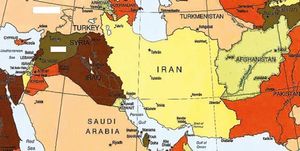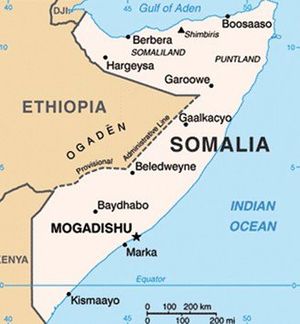In 1978, after forty years of exile, Ayatollah-Ruhollah Khomeini made his triumphal re-entry into Tehran, the capital of Iran. Hundreds of thousands of excited Iranians took to the streets to welcome him and celebrate the beginning of the new Islamic regime.
He had the blessing of Western nations hoping to keep Iran from joining the communist bloc. Shortly before that, the much-hated pro-Western monarch, Shah Muhammad Reza Pahlavi, had departed — a defeated man dying of cancer.
Murderous
Khomeini didn’t waste time. Immediately he declared the ‘Islamic Revolution’, which ‘beginning with this great country Iran will advance to the entire Islamic world’. So began a murderous regime, rooted in hate, oppression and violence — and the enforcement of Shiite ‘ideals’ and Shari’a law on the Iranian people.
But Khomeini’s double name Ayatollah-Ruhollah (‘the miracle and spirit of Allah’) was anathema to the Sunni majorities of other Islamic countries, especially Iraq, and a protracted war ensued between these powerful neighbours.
The Western bloc quickly changed its mind. It now supported the secularist Ba’ath regime of Iraq, led by Saddam Hussein, in its war against Khomeini’s Shiite revolution — a revolution, which dangerously reflected the aspirations of some Sunnis too. Pro-western Arab regimes, especially the oil-rich Gulf States, supported and financed Iraq, hoping to put an end to Khomeini’s international ambitions.
The war with Iraq dragged on for eight years, killing about two million Iranians and Iraqis. Double that number were maimed. Tens of thousands of young Iranians were sent to their death in battle wearing little plastic keys that would ‘open the doors to paradise’.
Devastation
The war devastated the Iranian economy, and few tears were shed when Khomeini died — more hated than the ousted Shah. In addition to the massive casualties and wrecked economy, Khomeini’s regime had murdered tens of thousands of Iranians. At least 120 Christians were murdered — converts from Islam and pastors and leaders of the tiny believing community.
But even while Khomeini’s ‘religious police’ hunted relentlessly for Muslim converts, the underground evangelical community grew day by day. Interested Iranians were seeking out believers to learn about Christ. One convert said, ‘In Iran, Christ is the most highly respected of all. There is no one like him!’
Harvest
However, the King of Kings and Lord of Lords does not need earthly armies to defeat the devil. The very means Khomeini used to advance his reign were paradoxically at work in the service of King Jesus.
Disenchanted Iranians resented the oppressive imposition of Islamic regulations. Most households lost loved ones in the war with Iraq. Others had had friends and family members arrested and tortured. Hundreds of thousands of Iranians escaped to other countries, particularly the West.
At least half the population — openly or secretly — rejected Islamic beliefs and practices. The ruling clerics who inherited Khomeini’s regime were forced to loosen Islam’s grip and embrace nationalism to hold on to power.
The resulting gospel harvest among Iranians at home and abroad has been remarkable. Although believers are still a tiny fraction of 70 million Iranians, their number has multiplied beyond anyone’s dream. The number of converts worldwide is estimated at 140,000, more than a twenty-fold increase. And interest is still growing.
Future
In one way, the most difficult task still lies ahead — the need to establish the converts in the grace of Christ. Eager to be linked to the outside world, many Iranian Christians are subjected to harmful influences. Wrong impressions of the gospel are disseminated by extreme Charismatics over the airwaves and satellite TV.
Sects like Jehovah’s Witnesses prey on the uninstructed. They have distributed more than 11 million pieces of Farsi literature in the past 21 years and claim more than 100,000 Iranian followers. There is renewed interest in Baha’ism and the Zoroastrian religion.
Such influences complicate the process of discipling believers and the need for effective spiritual leaders is urgent. MERF has, therefore, developed a strategy of training competent converts who can, in turn, teach other people basic Christian doctrine and practice.
There is also an urgent need for Farsi language broadcasts that go beyond the basic gospel message and give teaching on specific doctrines, such as the Trinity, the Holy Spirit, Bible interpretation and application, and worship. These subjects are being addressed in MERF’s Farsi publications programme too.












